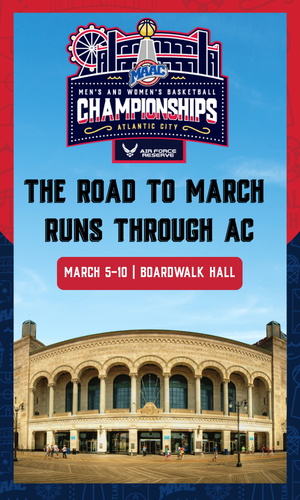Drink Up!
By David Setley
This year’s holiday calendar is rather unique. Not only is Dec. 25 Christmas Day on the Christian calendar, but that evening is also the first night of the 8-day Hanukkah celebration on the Jewish calendar. This is only the fifth time in the past 125 years that these days have aligned!
Hanukkah is the wintertime festival of lights, marked by the nightly lighting of the menorah, special prayers, and fried foods. Hanukkah comes from the word “dedication” in Hebrew and celebrates the rededication of the Holy Temple after a small band of Jews, under the leadership of Judah the Maccabee, beat overwhelming odds and defeated what was then considered the most powerful army in the world. When the victorious Jews attempted to light the Temple’s menorah, they had enough olive oil to light it for one night. But, a miracle occurred. The menorah stayed lit for eight nights! Hanukkah celebrates that victory and the miracle of the oil. Eating foods fried in oil, including latkes and sufganiyot, also celebrates the oil.
What makes a wine kosher? In Yiddish, kosher means “fit” or “proper.” According to Nick Fauchald, kosher wine is wine produced to conform with Jewish dietary requirements under the supervision of a rabbi (Wine Spectator magazine). All ingredients, including the yeast and fining agents, must be kosher and all equipment utilized must be rabbinically certified. No corn syrup can be used as a sweetening agent unless additional certification is obtained and it is appropriately labeled on the bottle.
Manischewitz is one of the most recognized kosher wines. The Manischewitz winery is located in Canandaigua in the Finger Lakes region of New York State. This wine is made from New York Concord grapes and is known to be rather sweet and fruity with a flavor that is frequently related to Welch’s grape juice. It is very affordable and is a traditional celebration wine in many Jewish households.
There are many other kosher wines to choose from, including three options from Italy. Bartenura has a Moscato D’Asti and a Brachetto. Moscato D’Asti is a slightly sweet, effervescent wine with notes of pear, nectarines, melons, and apricot and a touch of honey. This is a wonderful welcome wine to greet guests with and goes well with salad or charcuterie. Bartenura Brachetto is produced with grapes grown in the Piedmont region in north-west Italy. Again, this is slightly sweet and effervescent with rich flavors of strawberry, raspberry, and hints of ripe cherry. Brachetto is wonderful as an aperitif, with cheeses, or with light entrees. For a drier, more traditional Italian red, try the Cantina Gabriele Sangiovese from Tuscany. This is a classic Italian Sangiovese with the deep ruby red color you are likely familiar with in Chianti wines and other Sangiovese-based Tuscano wines. It is full-bodied with fine, silky tannins and the flavors and aroma of dark cherries, leather, and earth. This is a perfect wine for all Italian fare and pairs well with your holiday brisket.
South Africa has become well-known for its fine wines, including three excellent kosher wines under the clever brand name Unorthodox. The Unorthodox Merlot & Cabernet Sauvignon blend is a great kosher red wine. The wine is aged seven months in oak barrels. The result is a full-bodied, rich, dark red wine with flavors of dark fruit and berries with a touch of vanilla and baking spices. This blend would go very well with brisket or any red meat.
Unorthodox also has a Sauvignon Blanc and, my favorite, the Unorthodox Chenin Blanc. The Sauvignon Blanc is light-bodied and aged in stainless steel to retain the wonderfully refreshing crispness and minerality of this varietal. Chenin Blanc is a varietal that South Africa has become known for. This artfully made dry white wine is well-balanced with the beautiful aroma of honeysuckle and chamomile and the fruit flavors of yellow apple, pear, white peach, and a touch of honey. This wine is aged in oak to impart light wood notes and a darker color. Either of these would be great with latkes or fish dishes.
Over the past year, several customers have asked me to investigate kosher wines from Israel. I’m happy to report that we have brought in a very good set from the Golan Heights of Galilee. Gilgal wines are premium quality and available in Chardonnay, Pinot Noir, and Cabernet Sauvignon. Gilgal Chardonnay is produced with 100% Chardonnay grapes grown in the Golan Heights. Aging in French oak barrels for 4 months adds a pleasing toastiness to the lemony character typical of Chardonnay. This is an excellent wine with latkes, fish, or chicken dishes. Gilgal Pinot Noir is grown in the volcanic soil and high altitude of Israel’s Golan Heights, offering a pleasurable and uniquely savoring experience. This is a light-bodied red wine aged in French oak. It is a well-balanced Pinot Noir with an attractive layer of cherries and blueberries and a subtle earthiness. The Cabernet Sauvignon is aged for one year in French oak barrels and has the rich fruit flavors of raspberry, blackberry and cherry with notes of black pepper, herb and chocolate and a lingering finish. This one is perfect with a steak, a hamburger or a brisket.
I hope this article gives you a better understanding of kosher wines and some recommendations to complement your holiday celebrations. As always, if you have questions, feel free to contact me at dsetley@passionvines.com or stop by the store. Until next time, Happy Hanukkah and happy wining!
David Setley is enjoying his retirement from higher education as a wine educator and certified sommelier at Passion Vines in Somers Point, New Jersey.











